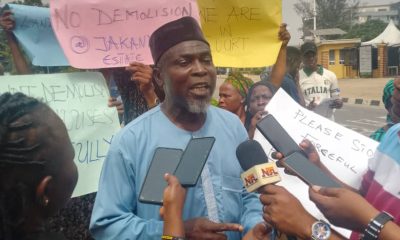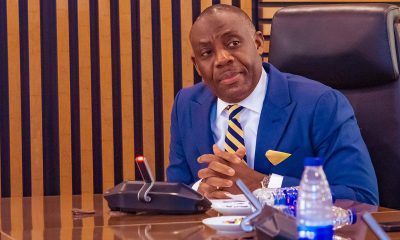The Nigerian naira showed signs of stability in the official foreign exchange market during Tuesday’s trading session, settling at N1,534/$ compared to N1,533.56/$ recorded on Monday, according to the Central Bank of Nigeria (CBN).
The relative steadiness comes as demand for the U.S. dollar moderated, offering some relief to Nigeria’s foreign exchange market.
The naira traded within a broader range of N1,665/$, driven by demand from importers, currency hedgers, and other non-financial end-users.
Despite inflationary pressures, analysts highlight improved fundamentals in the official market, bolstered by the CBN’s ongoing reforms aimed at enhancing transparency and efficiency.
Key reforms include the adoption of platforms like Bloomberg’s BMatch and the Electronic Foreign Exchange Matching System (EFEMS), which facilitate real-time price negotiations and transactions between authorized dealers and banks.
These measures, combined with the CBN’s efforts to clear foreign exchange backlogs, have supported the naira’s stability.
READ ALSO: Naira gains at official market amid inflation rise, loses ground in parallel market
The International Monetary Fund (IMF) has acknowledged these developments, noting in its October report that the naira’s relative stability is tied to recent monetary tightening and ongoing fiscal adjustments.
However, the naira’s stability comes amid rising inflation. According to the National Bureau of Statistics (NBS), Nigeria’s inflation rate climbed to 34.6% in November 2024, up from 33.88% in October.
Food prices and energy costs remain significant drivers of inflation, adding strain to households and businesses despite the naira’s improved standing in the official FX market.
Analysts warn that persistent inflation could erode purchasing power and complicate the CBN’s efforts to maintain macroeconomic stability.
Globally, the U.S. dollar held steady at a three-week high amid speculation around the Federal Reserve’s monetary policy stance. While a 25-basis-point rate cut is widely anticipated in 2025, analysts predict the Fed will maintain a cautious approach to further easing due to robust U.S. labor market and inflation data.
This strength in the U.S. dollar has ripple effects on emerging markets like Nigeria, where dollar demand influences the exchange rate dynamics.
READ ALSO: CBN cracks down on illicit mint naira trade, slaps Banks with fresh sanction
According to Bank of America analysts, the dollar’s current momentum is likely to persist in the short term but could wane in the latter half of 2025 as global economic conditions shift.
The naira’s continued stability depends on the successful implementation of CBN reforms and sustained moderation in dollar demand.
Economists emphasize that addressing inflationary pressures, boosting local production, and expanding foreign reserves—which currently stand at $42 billion—are critical to maintaining this trajectory.
“While the naira has shown remarkable resilience, the rising inflation rate presents significant risks to economic stability,” said a Lagos-based economist. “Policymakers must prioritize a balanced approach that tackles inflation while preserving the naira’s value.”
As the Federal Reserve and other central banks adjust their policies, Nigeria’s foreign exchange market will need to navigate global economic trends and domestic fiscal challenges to sustain the naira’s recent gains.

 Latest1 week ago
Latest1 week ago
 News1 week ago
News1 week ago
 Business6 days ago
Business6 days ago
 Business1 week ago
Business1 week ago
 Latest1 week ago
Latest1 week ago
 Education1 week ago
Education1 week ago
 Business6 days ago
Business6 days ago
 Football1 week ago
Football1 week ago

